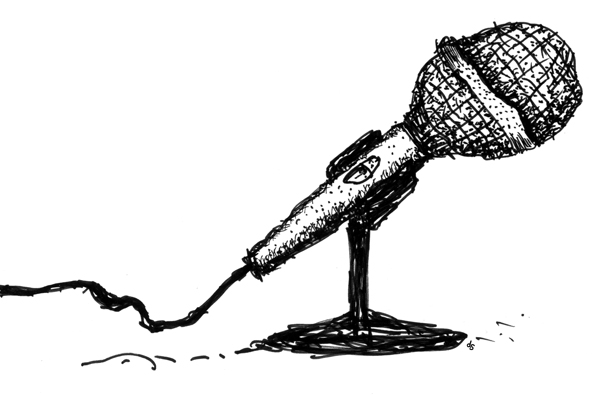Q: What are your influences?
A: Mediocre things, like this interview. That’s a terrible question. So I think “When I do an interview, I need to remember to ask better questions than that.”
Q: But people make their own connections between your work and that of other artists and want to know if you see the same connections. Maybe fans or students want to know who else to look at if they like you.
A: Yes but you have to think, as the interviewer, what you’re asking the interviewee to do with each question. In this case, to list off artists they either think about all the time or that they used to think about so much that they’re pretty well over-thinking about them and they’ve just become part of their creative DNA. And that bores them, and a bored interview is a bad interview. How often in a real conversation do you ask someone to make a list? Instead, if Sarah Sze mentions Jean Tinguely you might go “Can you tell us about the first time you saw a Jean Tinguely?”. That might get her thinking.
Q: That’s great but we still don’t know all her influences.
A: Sarah Sze isn’t Secretary of State. You’re not asking her questions because anyone anywhere needs to know the answers; you’re asking because you’re hoping she’ll say something interesting and weird. You can’t do it by making her feel like she’s filling out a doctor’s office questionnaire: “Have you ever had an influence? Yes-No-Not Sure…”
Q: So, Interview Genius, what is a good list of questions?
A: If you’re making a list you’re already doing it wrong. There are no questions that’ll work well for every artist. It’s like surgery: you have to open a body up before you can pull out the goo.
Q: How do you do that?
A: Get them to tell you a story. The easiest way—if you haven’t got any other ideas—is to ask about the story of their life. You don’t need much, just start with: Where are you from? Alabama? Is this Alabama the one I imagine from my ignorant urban coastal POV, or is it another Alabama? And you get them talking.
Q: But my editor wants feature on art not a feature on Alabama.
A: They are an artist now so something about art will come up. Artists have reputations for being shy or bad at talking because they get asked terrible stock questions by people trying to fit them into topical headlines like “Arizona Artist Transforms Immigrant Sweat Into Translucent Icons of Unearthly Beauty,” and then ask her 50 questions about the border wall and she says what any other half-sane person would say, and then one question about art by which time she’s forgotten your name and hates you and remembers she hasn’t had lunch yet. This is because you’re just shoving your concerns at them, not trying to figure out her concerns. If she doesn’t bring up art, you can then ask, “When was the first time you remember seeing art or wanting to be an artist?” Even if they don’t see a connection between their life and art, you eventually will, and you can ask “Oh do you think your parents’ horror VHS collection related to this idea that people have this sort of chaos inside them?” And even if they’re “I never thought about it but mayyybe…” they’re in a conversation instead of this gross thing they do for work.
Q: What if I’m wrong and they say no?
A: Then they’ll say “No, it’s not that, it’s more…” and tell you something else, like maybe it’s more because of that time their dad shot a dog and ate it. The point is: what do they care about?
Q: What if they don’t care about what I care about?
A: You care about the art though, so tell them why—that’s at least news to them, and artists are interested in new reactions. Even if they’re like “Pat, you moron, this art isn’t about the moon”—that’s still fun to read.
Q: But then I’m making myself part of the story.
A: You already did that when you curated them into whatever journalistic organ you pitched them to. If you’re going to make us pay attention to them you kind of owe it to us (and them) to say why.
Q: But what if I’m not interested in their work and I’m only interviewing them because their new show is considered a big deal in the art world?
A: Then poison your boss and change your profession.


